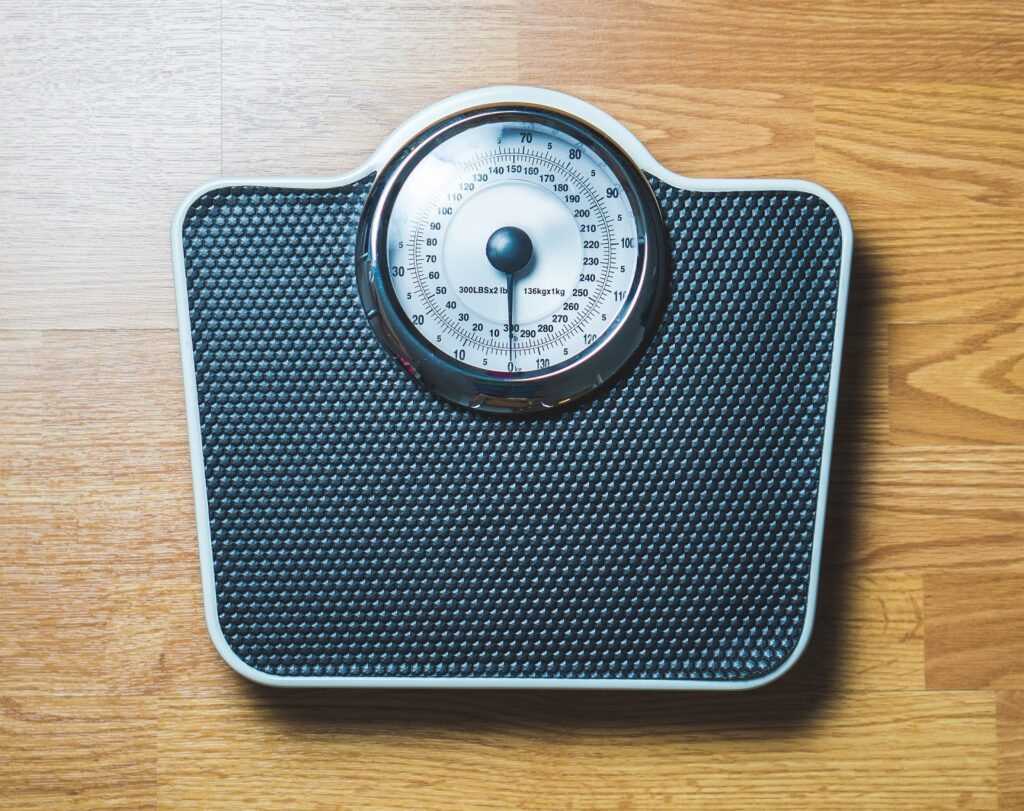Meet the Duodenal Switch: An Aggressive and Effective Procedure for Weight Loss
Life is different when you’re overweight or obese in Amarillo.
Normal, everyday activities like walking your dog in the middle of summer, exercising, or grocery shopping without everyone looking at what’s inside your buggy, are so much harder when you’re heavier than you’d like to be.
And even though “more than one-third (36.5%) of U.S. adults” are obese,” according to the Centers for Disease Control and Prevention (CDC), you probably also feel super alone.1
While your friends sunbathe or mountain bike, you’re making excuses as to why you don’t feel confident enough to enjoy either.
You probably also have to cut playtime short with your kids just to catch your breath—which doesn’t make you feel like parent-of-the-year.
You know that you want—and seriously need—a major lifestyle change.
But despite trying your best to diet and exercise, you just can’t seem to budge the scale on your own.
You’re not a failure—you’re just fighting a battle of genetics, hormones, and your body’s stubbornness to remain at your set point. When your body gets comfortable in this weight zone, it will do everything to keep you there.
Feel like you deserve a restart?
Bariatric surgery helps people reset their set points so they have a fresh start to a healthy life.
Duodenal switch surgery, also known as biliopancreatic diversion with duodenal switch, or simply the switch, is one of the most effective procedures for sustained weight loss.
In basic terms, it involves reducing the size of your stomach (like gastric sleeve surgery) and rerouting your intestines.
DS patients lose most of their excess weight over two years, and they keep it off longer than patients undergoing any other bariatric surgery.
Let’s discuss why you’ll lose weight, feel hungry less often, and get healthier with the help of duodenal switch surgery today.
So What is Duodenal Switch Surgery?
In case you haven’t read our post, Why We Perform More Gastric Sleeve Surgeries than Any Other Weight Loss Procedure, we’ll give you a brief recap:
Your stomach is reduced by 70–80%, leaving a small, banana-shaped sleeve behind. The smaller your stomach, the less food you’re able to eat.
Duodenal switch surgery takes this one step further by adding a malabsorptive element.
After performing a gastric sleeve, your surgeon will cut a portion of your intestines right before your appendix and reattach it to a part of your intestines further along your digestive tract.
Why this detour?
During digestion, bile and digestive juices break down your food into calories your body will use during the day (among other things).
By delaying this process—or moving it closer to the end of your digestive path—your body has a smaller window of time to actually absorb the fat you consume. Translation: fewer calories stick to your body after each meal. Also by rerouting the small intestine it has been shown to activate multiple hormones in your body thereby increasing your metabolism and making your body more sensitive to insulin.

DS surgery takes about 1 hour to perform and patients can go home the same day of surgery.
Why is Duodenal Switch Surgery So Effective for Sustained Weight Loss?
Duodenal switch surgery has a 90% success rate, meaning 90% of patients lost some of their excess weight as a result of the procedure.
There are three reasons duodenal switch surgery is so amazing for sustained weight loss:
- A smaller stomach means you’ll eat less. Imagine fitting one chicken breast in a mixing bowl and one chicken breast in a teacup; which do you think will be filled to capacity?
Your new stomach will not be able to hold the same amount of food you were used to eating before your surgery so you wind up eating less on your own. This helps your body create a calorie deficit to help you lose weight. - You may completely forget to eat following DS surgery because your smaller stomach will also produce less ghrelin, or the hormone responsible for telling your body you’re hungry.
By removing so much of your stomach, your body will produce significantly smaller quantities of this hormone.
You’ll never feel starved or deprived post-DS surgery like you may have with other diets in the past. See ya, constant hunger pangs! - You’ll achieve quick weight loss results and sustain them because you’re combining stomach-size restriction with the highest rate of malabsorption. Besides eating less, you’ll also be absorbing less fat from the foods you do digest.
Patients typically lose 60 to 80 percent of their excess body weight and maintain 70 percent excess body weight loss after 10 years.2
While you can regain weight after other bariatric procedures, DS patients are the least likely bariatric surgery patients to gain weight back.

Another study of DS patients revealed that after a 7-year post-surgery average:
- 92% of patients with an initial BMI ≤ 50 reached a BMI < 35
- 83% of patients with an initial BMI > 50 reached a BMI < 40
- Only 1.3% of patients lost less than 25% of their initial excess weight3
Duodenal switch surgery isn’t just awesome for shedding pounds. It will also improve or completely resolve several serious weight-related medical conditions as well.
Medical Conditions Duodenal Switch Surgery Helps Resolve
Bariatric surgery helps patients reduce their medications or completely resolve their weight-related conditions.
Duodenal switch surgery specifically has been shown to improve or resolve:
- Type 2 Diabetes 92–100%4
- Heart disease 86%5
- High cholesterol 70%6
- High blood pressure 79%7
- Obstructive sleep apnea 90%8
- GERD 49%9
- PCOS / menstrual irregularities Improved or resolved in most patients
- Anxiety and depression Improved for most patients
Additionally, researchers from that previous study of DS patients reported:
- Medication for asthma decreased in 88% of patients
- 95% of patients were satisfied with the overall results of their DS surgery10
Are You a Good Candidate for Duodenal Switch Surgery?
To qualify for the switch, you have to be healthy enough to undergo the surgical procedure and you also need to have a:
- BMI ≥ 40
- BMI ≥ 35 with 1 weight related medical condition
Don’t know your BMI? No biggie— Click Here to Calculate Your BMI.
Keep in mind that your BMI is only one screening tool we use at Panhandle Weight Loss Center. We take a comprehensive diagnostic overview of your whole body before we determine if the switch or gastric sleeve is your best course of action.
Since the switch is more complicated than the gastric sleeve—which most patients do quite well with—it takes a special candidate to qualify for one. Generally, we perform the switch on:
- People with very slow metabolisms. The sleeve limits your calorie intake by restricting how much food you can eat at one time. However, if your metabolism isn’t strong enough to lose weight despite that calorie deficit, you won’t see the results you’re hoping for.
We’ll perform tests to diagnose the health of your metabolism so we’ll know right away if you’ll have better results with the sleeve or the switch.
- Type 2 Diabetics. The sleeve is not guaranteed to resolve type 2 diabetes whereas the switch’s rerouting will take care of your chemical imbalance almost instantaneously.
If type 2 diabetes runs in your family and you’re struggling to control it with medication, you may not need anything to manage your type 2 diabetes after the switch.
What are the Risks Involved in Duodenal Switch Surgery?
DS surgery is more complicated than gastric sleeve surgery because it involves an intestinal rerouting procedure.
To minimize risks for their patients, Dr. Bleu and Dr. Bo perform all their surgeries together as a team so you can feel confident knowing you’re always in trusted hands.
Complications that arise from DS surgery are standard for most bariatric procedures and include: stomach/intestinal leaks, infection, and bleeding.
DS patients specifically have to watch out for malnutrition and nutritional deficiencies if they don’t follow a strict diet and supplement regime. Since your body will be absorbing less nutrients from your food, you’ll need to supply them another way.
Is Duodenal Switch Surgery Covered by My Insurance?
Many major insurance companies now provide coverage for bariatric surgeries like the duodenal switch, but you’ll need to check with your specific healthcare provider to find out if they’re one of them.
Since DS resolves so many expensive and life-threatening medical conditions, many insurance companies are happy to cover it.
Our experts here at PWLC can help you find coverage for your procedure—or match you with a finance plan to minimize your out-of-pocket expenses—so money doesn’t keep you from the path to better health.
Should You Consider Duodenal Switch Surgery?
How would your life change if you lost 80% of your excess weight in less than one year?
Would you finally have the motivation to change your diet? Would your weight stop preventing you from exercising in the great outdoors of the Texas panhandle? Would you be thrilled to have more energy throughout the day?
Bariatric surgery options like the switch aren’t a magic fix-all for your weight troubles. But they can be used as a tool to kickstart the healthy life you’ve always pictured for yourself.
There’s no other procedure that guarantees immediate and long-term weight loss results for people struggling with obesity than duodenal switch surgery. So are you ready to find out if you’re a good candidate for the switch?
1 Centers for Disease Control and Prevention. Adult Obesity Facts. Available: https://www.cdc.gov/obesity/data/adult.html. Accessed May 25, 2022.
2 Columbia Surgery. Duodenal Switch (PBD-DS). Available: https://columbiasurgery.org/conditions-and-treatments/duodenal-switch-bpd-ds. Accessed May 25, 2022.
3 Marceau, P., Biron, S., Hould, FS. et al. Duodenal Switch: Long-Term Results. OBES SURG 17, 1421–1430 (2007). https://doi.org/10.1007/s11695-008-9435-9. Accessed May 25, 2022.
4 Cleveland Clinic. Bariatric (Weight Loss) Surgery for Treating Diabetes. Available at: https://my.clevelandclinic.org/health/treatments/21153-bariatric-weight-loss-surgery-for-treating-diabetes. Accessed May 25, 2022.
5 Marceau, P., Biron, S., Hould, FS. et al. Duodenal Switch: Long-Term Results. OBES SURG 17, 1421–1430 (2007). https://doi.org/10.1007/s11695-008-9435-9. Accessed May 25, 2022.
6 Buchwald H, Avidor Y, Braunwald E, Jensen MD, Pories W, Fahrbach K, Schoelles K. Bariatric surgery: a systematic review and meta-analysis. JAMA. 2004 Oct 13;292(14):1724-37. doi: 10.1001/jama.292.14.1724. Erratum in: JAMA. 2005 Apr 13;293(14):1728. PMID: 15479938. Available: https://pubmed.ncbi.nlm.nih.gov/15479938/. Accessed May 25, 2022.
7 Buchwald H, Avidor Y, Braunwald E, Jensen MD, Pories W, Fahrbach K, Schoelles K. Bariatric surgery: a systematic review and meta-analysis. JAMA. 2004 Oct 13;292(14):1724-37. doi: 10.1001/jama.292.14.1724. Erratum in: JAMA. 2005 Apr 13;293(14):1728. PMID: 15479938. Available: https://pubmed.ncbi.nlm.nih.gov/15479938/. Accessed May 25, 2022.
8 Marceau, P., Biron, S., Hould, FS. et al. Duodenal Switch: Long-Term Results. OBES SURG 17, 1421–1430 (2007). https://doi.org/10.1007/s11695-008-9435-9. Accessed May 25, 2022.
9 Prachand, V.N., Ward, M. & Alverdy, J.C. Duodenal Switch Provides Superior Resolution of Metabolic Comorbidities Independent of Weight Loss in the Super-obese (BMI ≥ 50 kg/m2) Compared with Gastric Bypass. J Gastrointest Surg 14, 211–220 (2010). https://doi.org/10.1007/s11605-009-1101-6. Accessed May 25, 2022,
10 Marceau, P., Biron, S., Hould, FS. et al. Duodenal Switch: Long-Term Results. OBES SURG 17, 1421–1430 (2007). https://doi.org/10.1007/s11695-008-9435-9. Accessed May 25, 2022.